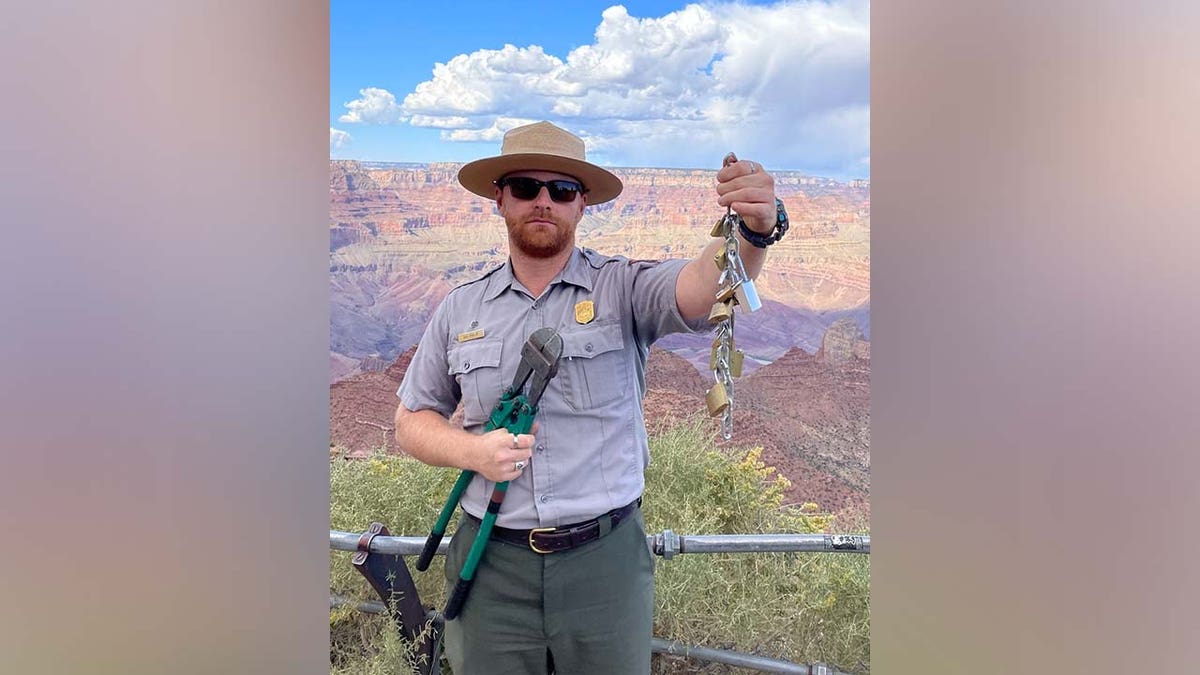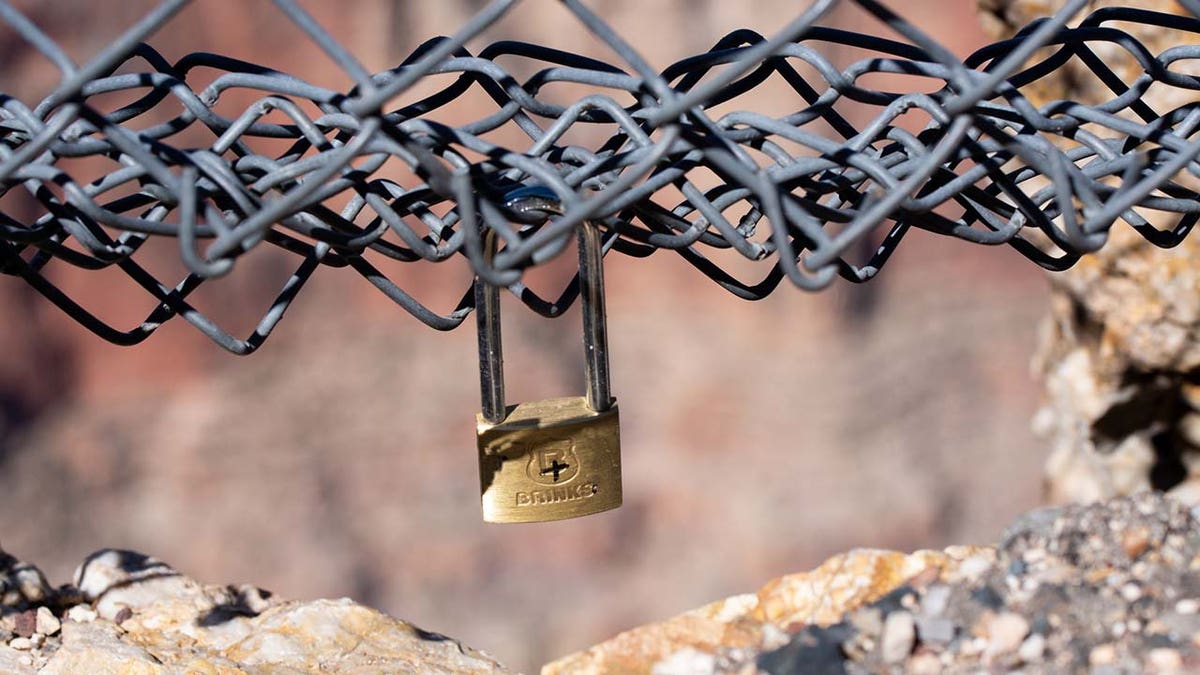Northern Lights cast a green glow above Alaska’s Glacier Bay National Park
Alaska’s Glacier Bay National Park is lit with a stunning green glow as the Northern Lights put on a beautiful display in the early morning hours.
"Love locks" – padlocks snapped onto fences and barriers at breathtaking locations by couples to symbolize the permanence of their bond – are apparently a threat to wildlife, per a social media post from staff at Grand Canyon National Park.
"Love is strong, but our bolt cutters are stronger," park staff wrote in a Wednesday Facebook post. "People think putting a lock on fencing at viewpoints is a great way to show love for another person. It's not. Leaving padlocks is littering and a form of graffiti."
Typically, lovers will throw the padlock's key into the river or gorge behind the fence where they affix their lock – in this case the Grand Canyon. However, this step in the popular ritual is especially dangerous, park staff wrote.
LAKE MEAD WARNS OF DEADLY BRAIN-EATING AMOEBA FOUND IN HOT SPRINGS

Padlocks left behind on fencing are called love locks. "People think putting a lock on fencing at viewpoints is a great way to show love for another person. It's not. Leaving pad locks like this is littering and a form of graffiti," Grand Canyon park staff wrote in a Wednesday Facebook post. (Grand Canyon National Park)
"Condors are curious animals and much like a small child will investigate strange things they come across with their mouths," read the post. "They will spot a coin, a wrapper, or a shiny piece of metal – like a key from a padlock that has been tossed into the canyon – and eat it."
COLORADO HIKER MISSING NEARLY 2 WEEKS IN ROCKY MOUNTAIN NATIONAL PARK; LARGE-SCALE SEARCH SUSPENDED
To illustrate their point, park rangers posted an X-ray image of a condor with coins lodged in its digestive tract. If the animal eats too many shiny metal objects, per the post, "it could die."

An X-ray of a condor who has swallowed several coins. Grand Canyon park staff wrote in their Wednesday Facebook post that keys thrown off the canyon as part of the popular love lock ritual could pose a health hazard to the birds. (Grand Canyon National Park)
Despite posted warnings, objects are thrown into the canyon every day, staff said. Last year, TikTok influencer Katie Sigmond was fined $285 for lobbing a golf ball into the Grand Canyon, per the park's social media.
"Padlocks and trash are not anomalies limited to Grand Canyon," park staff wrote. "Do your part to not contribute to these bad habits and inform others of what can happen to the wildlife if these behaviors continue."
The practice of padlocking monuments has posed an issue worldwide. In 2015, the weight of locks latched to the Pont des Arts bridge in Paris weighed a total of 45 tons – the same weight as about 10 adult male African elephants – compromising the integrity of the structure.
NORTHERN LIGHTS CAST A GREEN GLOW ABOVE ALASKA'S GLACIER BAY NATIONAL PARK

Couples will often latch padlocks to fences around picturesque views to symbolize the longevity of their love, throwing the key into a river or gorge. Grand Canyon National Park staff wrote that objects are thrown into the canyon – despite posted warnings – every day. (Grand Canyon National Park)
CLICK HERE TO GET THE FOX NEWS APP
California condors are among the most endangered birds in the world, per the Arizona Game & Fish Department. They were placed on the endangered species list in 1967 and reintroduced in Arizona as a provision of the Endangered Species Act. In 1982, only 22 of the condors remained worldwide; in 2022, per the Grand Canyon National Park website, 92 inhabited the skies of Arizona and Utah.
More than 500 are currently living as a result of repopulation efforts, according to the American Bird Conservancy.






















